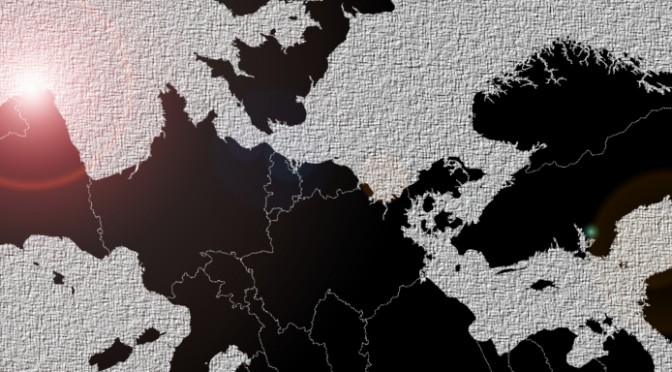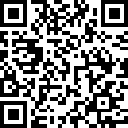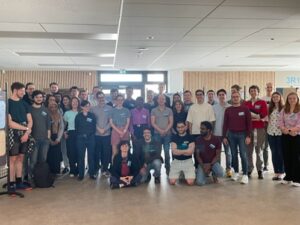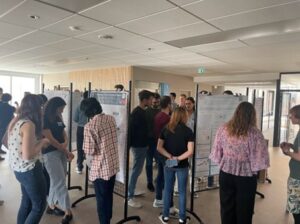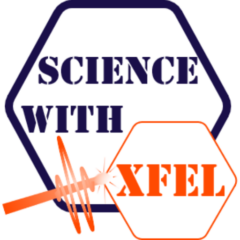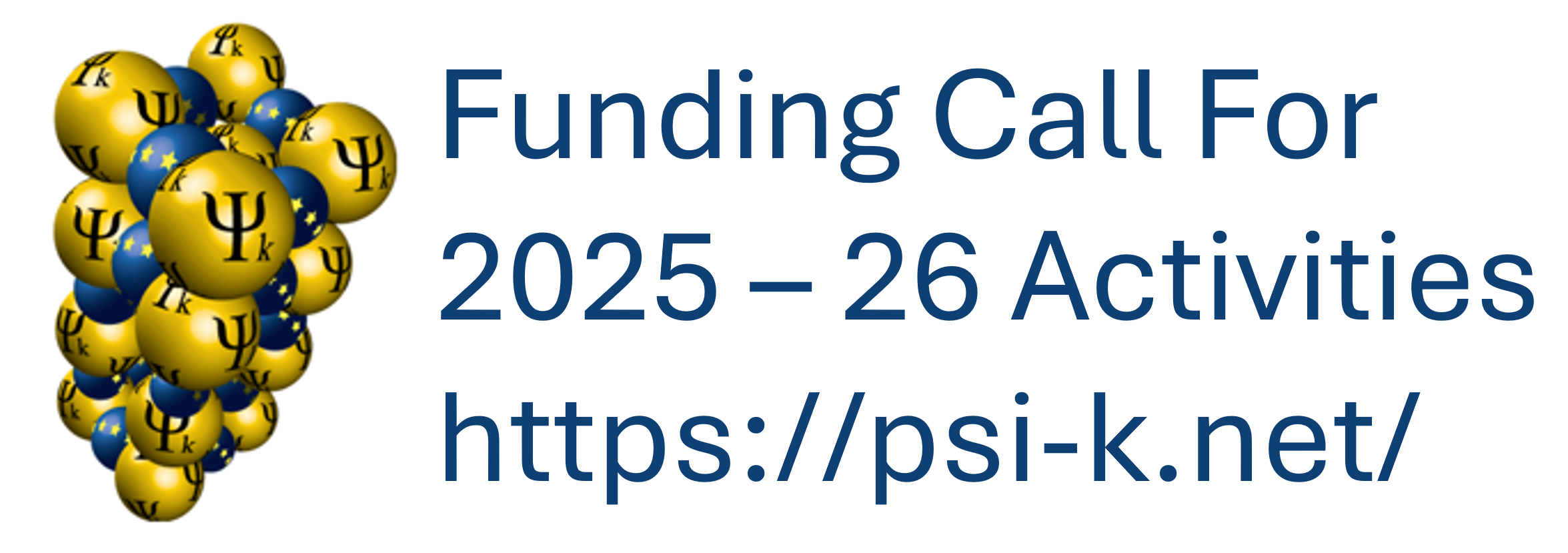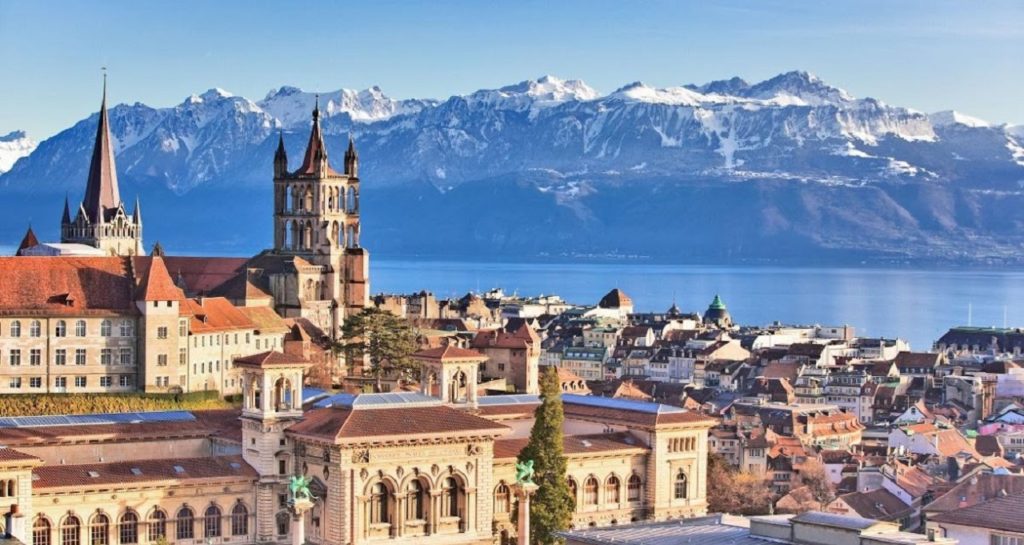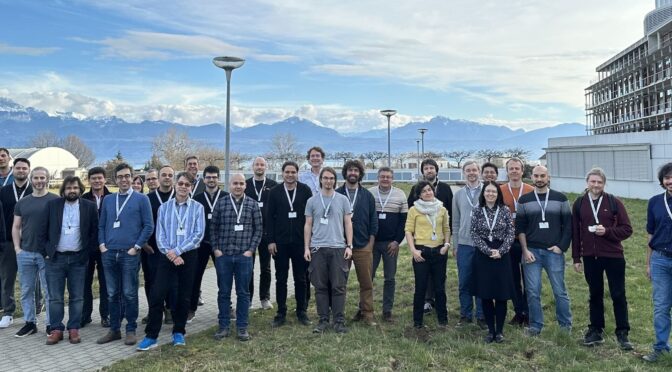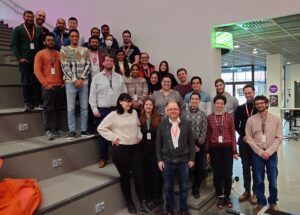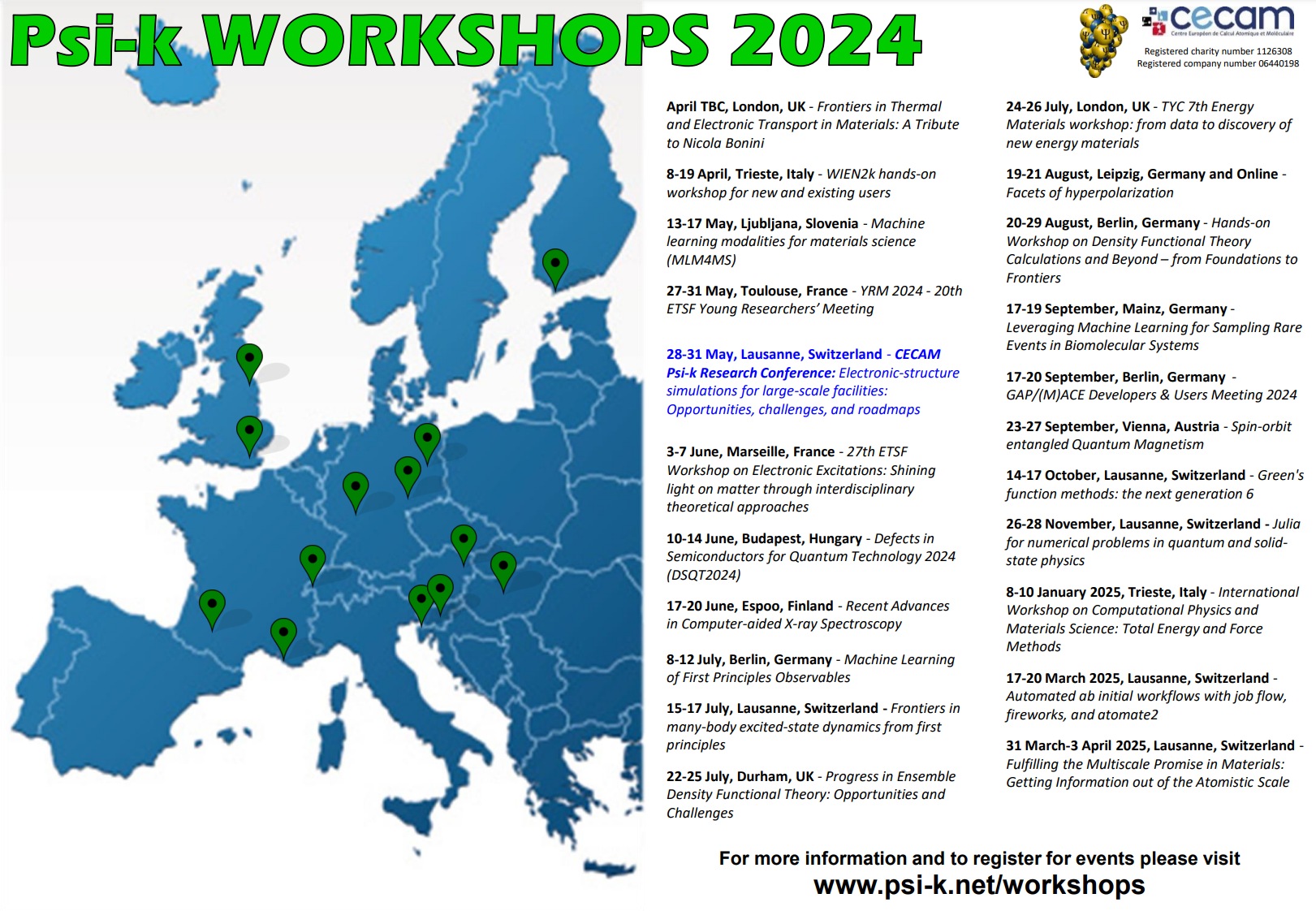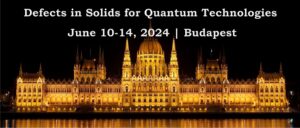
From 10th to 14th June 2024 the second conference devoted to first-principles calculations of defect qubits’ magneto-optical and spin properties for quantum technologies was held at the Eötvös Loránd University (ELTE) in Budapest, Hungary where theory also met experiments to discuss scientific issues.
This conference welcomed 154 participants from 28 countries registered for the workshop from 5 continents including the organizers. The participants showed up in person at the workshop site and attended the scientific talks except for one attendee with on-line participation. The final scientific program of the workshop lasted for five full days, included 18 invited talks, 41 contributing talks, and a poster session with 87 posters, and a Discussion session about single defect engineering with leading experimentalists and theorist. The event was sponsored jointly by the Psi-k organization, CECAM HQ, Eötvös Loránd University (Budapest, Hungary), Quantum Information National Laboratory of Hungary, and the Applied Physics Letters.
The purpose of this conference to bring together world-leading theoreticians and experimentalists active in the field of quantum information processing based on solid state qubits. Our discussions improve interdisciplinary cooperation overcoming traditional boundaries between scientific disciplines. Invited speakers at DSQT2024 workshop represented electronic structure theory community, theory at phenomenological and atomic scale level, materials growth, defect engineering, surface chemistry, quantum optics and spin physics. Recognized leaders in the field, highlighted recent progress and discuss challenges and opportunities in their invited talks. Invited talks, contributed talks, posters, and the Discussion session stimulated the exchange of methodological expertise and new developments between scientists working on different aspects of the field, illuminate opportunities for optimizing the materials properties and device design aided by theory.
The conference was originally designed to host 100 participants, but given the unexpectedly high level of requests for participation an effort was made to increase numbers and accommodate 150+ participants.
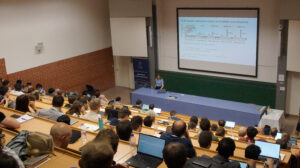
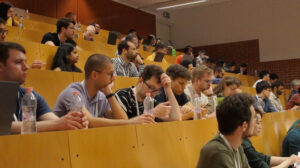
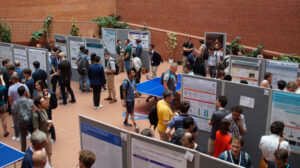
Detailed Program
Monday June 10th 2024 – Day 1
- 08:00 to 09:20 – Registration
- 09:20 to 10:00 – Registration + Introduction
Theory for scaling up: searching and characterization
- 10:00 to 10:40 – Volker Blum – Dopants and compensating defects in hybrid perovskites from hybrid DFT – in supercell models with thousands of atoms
- 10:40 to 11:00 – Coffee break
Theory: screening and excited states
Color center in 2D materials
- 13:40 to 14:20 – Hannah L. Stern – A quantum coherent spin in a two-dimensional material at room temperature
- 15:00 to 15:20 – Coffee break
Diamond NV: novel control schemes
- 16:40 to 18:40 – Welcome reception
Tuesday June 11th 2024 – Day 2
Silicon carbide qubits I
- 09:40 to 10:20 – Jörg Wrachtrup – TBA
- 10:40 to 11:00 – Coffee break
Silicon carbide qubits II
Diamond NV center: electrical control
- 15:00 to 15:20 – Coffee break
Diamond NV center for quantum sensing
- 16:40 to 18:40 – Poster session: SiC, diamond NV quantum simulation and computing, diamond alternative color center formation, Si and alternative 3D materials
Wednesday June 12th 2024 – Day 3
Theory of excited states in periodic models I
- 09:40 to 10:20 – Cyrus E. Dreyer – Embedding methods for quantum defects
- 10:40 to 11:00 – Coffee break
Color centers in silicon
- 11:00 to 11:40 – Anaïs Dréau – Rotation of the center-of-mass of single G centers in silicon-on-insulator
Diamond NV center: quantum simulation and sensing
- 13:40 to 14:20 – Fedor Jelezko – Quantum simulation in isotopically engineered diamond
- 14:20 to 15:00 – Aparatija Singha – Quantum sensing with single spin sensitivity
- 15:00 to 15:20 – Coffee break
Color centers in diamond I
- 16:40 to 18:40 – Discussion section
- 19:00 to 22:30 – Cruising and dinner on Danube
Thursday June 13th 2024 – Day 4
Rare-earth ions and color centers in Si
- 10:40 to 11:00 – Coffee break
Search for qubits in 3D and 2D materials
- 11:00 to 11:40 – Kristian Thygesen – High-throughput discovery of quantum defects in low dimensional crystals
Theory of 2D materials
- 14:20 to 15:00 – Sivan Refaely-Abramson – Excited-State Phenomena at Defects in 2D Semiconductors: a Many-Body Perspective
- 15:00 to 15:20 – Coffee break
Silicon carbide qubits III
- 16:40 to 18:40 – Poster session: Theoretical methods, diamond NV sensing, alternative diamond color centers, 2D materials
Friday June 14th 2024 – Day 5
Theory of excited states in periodic models II
- 10:40 to 11:00 – Coffee break
Color centers in diamond II
Color centers in hexagonal boron nitride I
- 15:00 to 15:20 – Coffee break
Color centers in hexagonal boron nitride II
- 16:20 to 16:40 – Closing Word
Invited speakers
THEORY
Denmark
Kristian Sommer Thygesen (DTU)
Hungary
Anton Pershin (Wigner Research Centre for Physics)
Israel
Sivan Refaely-Abramson (Weizmann Institute of Science)
Italy
Marco Govoni (University of Modena and Reggio Emilia)
Sweden
Oscar Bulancea-Lindvall (Linköping University)
USA
Volker Blum (Duke University)
Liang Tan (LBNL)
David Strubbe (University of California, Merced)
Cyrus E. Dreyer (Stony Brook University)
EXPERIMENT
Austria
Michael Trupke (Austrian Academy of Sciences)
France
Patrice Bertet (University of Paris-Saclay)
Anaïs Dréau (Université de Montpellier)
Germany
Jörg Wrachtrup (University of Stuttgart)
Fedor Jelezko (University of Ulm)
Andreas Reiserer (Technische Universität München)
Aparatija Singha (Max Planck Institute, Stuttgart)
United Kingdom
Hannah L. Stern (Cambridge University)
Cristian Bonato (Heriot-Watt University)
USA
Burcu Ozden (Penn State Abington)
Organizers
The organizers of the conference were:
- Adam Gali (HUN-REN Wigner Research Centre for Physics/Budapest University of Technology and Economics)
- Viktor Ivády (Eötvös Loránd University)
- Igor Abrikosov (Linkoping University)
- Nathalie P. De Leon (Princeton University)
- Yuan Ping (University of Wisconsin-Madison)
General remarks and feedback from participants
We found sponsors to finance the “Best poster award” that were given to a youth male scientist and a female scientist to maximize the inclusivity in both career stage and gender. We believe that we could indeed inspire the young generation of scientists by the award. Furthermore, contributed talks from early career stage scientists were given and we had a very positive feedback from these scientists in social media after the conference (e.g., LinkedIn posts). We had 5 female invited speakers to encourage youth female scientists of the audience in their career. Although, the workshop was planned exclusively in person but we offered to one female invited scientist to present her results on-line because of the difficulties to travel with her recently born baby. In the organization and local organization teams we have women and men with diverse cultural background to run the conference in order to secure an inclusive environment for people with any gender or geographical locations of various habits.
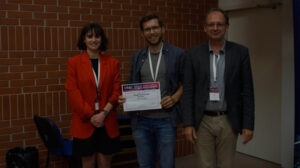
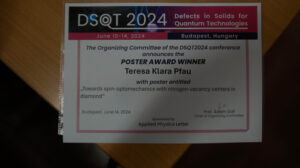
Conclusions and prospects
This conference was very successful on all fronts: the number of applicants exceeded our expectations, all lecturers did a wonderful job in preparing and delivering carefully-prepared lectures, and participants responded very positively and contributed with their energy and enthusiasm to make the best of this conference. Discussions amongst the attendees of the conferences highlighted the interest in not only continuing DSQT in its current form but also the idea of holding more specific workshops that focus on different topics within the area of ‘defects for quantum technology’. One idea that was discussed is a meeting focused on defects in two-dimensional materials, or a meeting that would include the community of those working on molecular spins for quantum technology. This could include not only the traditional electron paramagnetic resonance community interested in inorganic high spin complexes, but also the organic molecular community where the photophysics of optically addressable spins resembles that of defects in wide bandgap solids. By combining the two fields (molecular spins and solid-state defects) we would hope to broaden the theoretical and experimental approach to studying these systems. Separately, grant proposals and collaborations were discussed by participants at the meeting forming European/UK consortia.
This event would not have been possible without the impeccable local organization team from ELTE and generous support of Eötvös Loránd University (ELTE). In particular, Viktor Ivády’s team provided a great service to run the conference smoothly.
Given the very enthusiastic response of participants and lecturers alike, it will make sense to reiterate this event biannually to advance this rapidly evolving field.
Further details
Event website, with program, list of participants and abstracts

